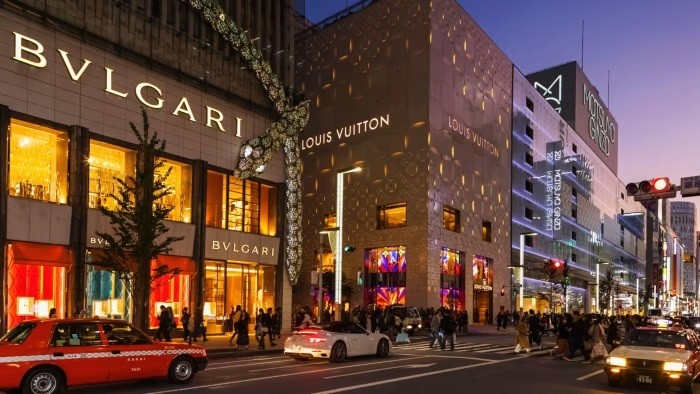01/08/2024
01/08/2024
Japan becomes luxury goods haven due to weak yen

TOKYO, Aug 1: Tourists are flocking to Japan to purchase high-end clothes and handbags at discounted prices, thanks to the weak yen. However, luxury goods companies like Louis Vuitton's parent company, LVMH, would prefer that shoppers buy their products in their home countries.
Last month, the yen hit a 38-year low against the dollar before recovering, sparking an unprecedented tourist boom. Shoppers from Asia and other regions are taking advantage of the favorable exchange rates, but this trend is not welcomed by global luxury brands. The cheaper prices in Japan, caused by the weak yen, are impacting profits as these goods are more affordable in dollar terms.
Many tourists, particularly from China, are delaying their purchases of designer goods at home to shop in Japan instead. The yen's volatility prevents companies from easily adjusting prices, resulting in lower margins in Japan.
Zhang Lei, a 29-year-old DJ from China's Hunan province, visited Japan for the first time and expressed his desire to return. "It's cheaper," Zhang said, carrying Louis Vuitton and Onitsuka Tiger shopping bags in Tokyo's Ginza district. He plans to buy a Rolex watch next.
French luxury giant LVMH, which also owns Dior and Fendi, has noticed a significant shift in business from Asia to Japan. LVMH's Chief Financial Officer, Jean-Jacques Guiony, mentioned this shift during a recent earnings call, noting the deflationary impact on LVMH's China business as customers choose to shop in Japan instead. The company's margins are under pressure due to the currency volatility, which can quickly negate price adjustments.
Louis Vuitton's popular Alma BB handbag is priced at 14,800 yuan ($2,050) in China but sells for 279,400 yen ($1,875) in Japan. At the yen's weakest point, the bag was available for as low as $1,725. The yen would need to strengthen to around 136 to the dollar for the bag's price in Japan to match its price in China. As of Thursday, the yen was at 149.30, close to its strongest point in four-and-a-half months.
Chinese tourists are also boosting sales of luxury spirits in Japan, according to Remy Cointreau CFO Luca Marotta. Japan's strong sales growth, driven by tourism and the weak yen, resulted in lower margins for the company.
Swiss luxury group Richemont, owner of the Cartier brand, reported a nearly 60% increase in Japan sales in the first quarter, aided by tourists from China, Southeast Asia, and the United States.
"Shopping, shopping, shopping," said Fumiko Annisa from Indonesia, describing her itinerary. She planned to buy Dior and Chanel items and visit Osaka and Gotemba, home to a large outlet mall selling brands like Arc'teryx and Zegna.
In June, Japan saw a record 3.1 million foreign visitors, according to official data, putting the country on track to surpass the annual record of nearly 32 million foreign arrivals set in 2019. Tourist spending is expected to reach 8 trillion yen ($54.74 billion) this year, as the government views tourism as a rare growth driver in an economy facing challenges from an aging population.
New Yorker Yadwinder Singh, 26, was surprised by the low prices at fast-fashion retailer Zara and other stores in Japan. "Clothes, jewelry, shoes - the whole outfit," Singh said, describing his extensive shopping spree.


